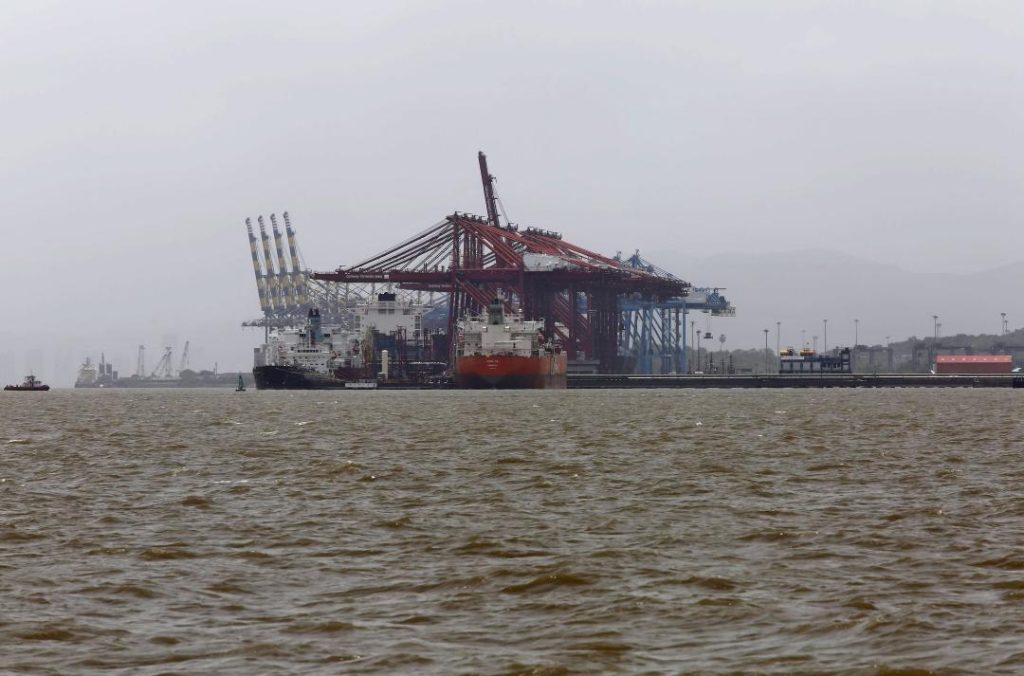
How was ₹800-cr scam undertaken by Tata firm & India’s largest container port’s ex-staff?
The Jawaharlal Nehru Port (JNPT) is India’s largest container port, and it plays a crucial role in the country’s trade and economy. However, a recent scam has raised serious concerns about the integrity of the port’s operations. According to a report by the Central Bureau of Investigation (CBI), a scam worth ₹800 crore was undertaken by former staff of Tata Consulting Engineers (TCE) and JNPT. The scam involved a dredging project, which was meant to deepen the port’s channel to accommodate larger vessels. However, the officials involved in the project chose to opt for a deeper vessel draft than necessary, causing a loss of ₹1,163 crore. Additionally, they opted for a single rate for dredging different types of rocks, causing another loss of ₹557 crore. The contractors also undertook dredging for excess width, resulting in a loss of ₹964 crore.
The CBI has flagged cumulative losses exceeding ₹4,200 crore in the JNPA dredging project, and summons are likely to be issued to the officials involved in the scam. The investigation is ongoing, and it is expected that more details will emerge in the coming days.
The scam appears to have been a well-planned and executed operation, with officials from TCE and JNPT working together to defraud the port authority. The officials involved in the scam are believed to have chosen a deeper vessel draft of 15 meters instead of the 14-meter draft that was necessary, causing a significant loss to the port authority. The deeper draft allowed for larger vessels to enter the port, but it also required more dredging work, which was not factored into the original project cost.
The officials also opted for a single rate for dredging different types of rocks, which was not appropriate for the project. The rocks in the port’s channel are of different types and densities, and each type requires a different type of dredging equipment and technique. By using a single rate for all types of rocks, the officials were able to reduce the cost of the project, but it also resulted in a loss of ₹557 crore.
The contractors involved in the project also undertook dredging for excess width, which was not necessary. The excess width was not required for the port’s operations, but it was included in the project to increase the profit margin of the contractors. The excess dredging work caused a loss of ₹964 crore to the port authority.
The CBI has launched an investigation into the scam, and several officials from TCE and JNPT have been questioned. The agency has recovered ₹100 crore in cash and ₹500 crore in assets from the officials involved in the scam. The investigation is ongoing, and more details are expected to emerge in the coming days.
The scam has raised serious concerns about the integrity of JNPT’s operations and the effectiveness of its internal controls. The port authority has been criticized for not detecting the scam earlier and for not taking prompt action to stop it. The central government has also been criticized for not providing adequate funding to the port authority to enable it to implement the dredging project effectively.
The scam has also raised concerns about the role of TCE in the project. The company is a leading consulting firm in India, and it has been involved in several high-profile projects in the country. The company’s involvement in the scam has raised questions about its integrity and its ability to deliver projects on time and within budget.
In conclusion, the ₹800-crore scam undertaken by former staff of TCE and JNPT is a serious concern for the country’s trade and economy. The scam highlights the need for stronger internal controls and greater transparency in the port’s operations. The investigation is ongoing, and it is expected that more details will emerge in the coming days.






